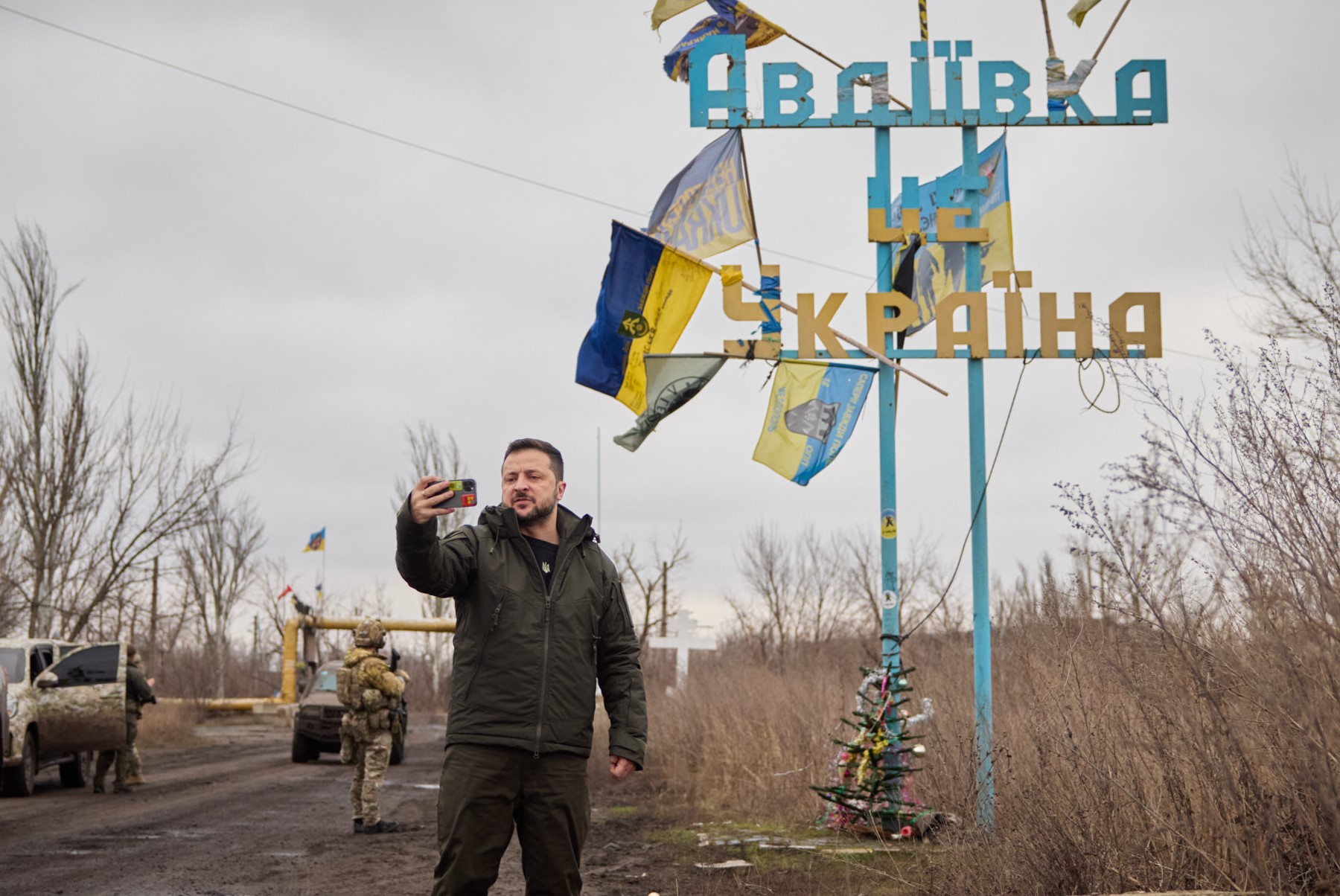
The announcement by the Russian Ministry of Defense that its forces had full control of the Ukrainian town of Avdiivka represents a devastating blow to Ukraine and, almost certainly, a decisive turning point in the war.
Avdiivka, which is called Avdeyevka by Russians, has endured a decade of conflict. It was taken in 2014 by forces of the Donetsk Republic. When the Ukrainians recaptured the town, they built extensive fortifications.
It was, therefore, regarded as a virtually impregnable strong point that the Russians would find difficult, if not impossible, to capture. Moreover, the Ukrainian leadership continually insisted that it was a vital strategic position, the loss of which would deal a heavy blow to all Ukrainian hopes for victory.
For all of these reasons, the fall of Avdiivka will have the most serious repercussions on the morale of the Ukrainian public in general and the Ukrainian armed forces in particular.
What was supposed to be one of the strongest and most fortified positions in the Ukrainian defenses has fallen. Some sporadic gunfire can still be heard, but the battle for Avdiivka is now effectively over.
Yet these astonishing developments, which one would suppose would warrant front-page news in the Western press, were met with what one can only describe as a deafening silence.
The Death of Navalny
Instead, the entire coverage of Western media was devoted to one question: the death of Alexei Navalny in a Russian prison camp. Since he was the main leader of the bourgeois-liberal opposition in Russia supported by the West, this was quite predictable—as was the instant verdict by Western leaders.
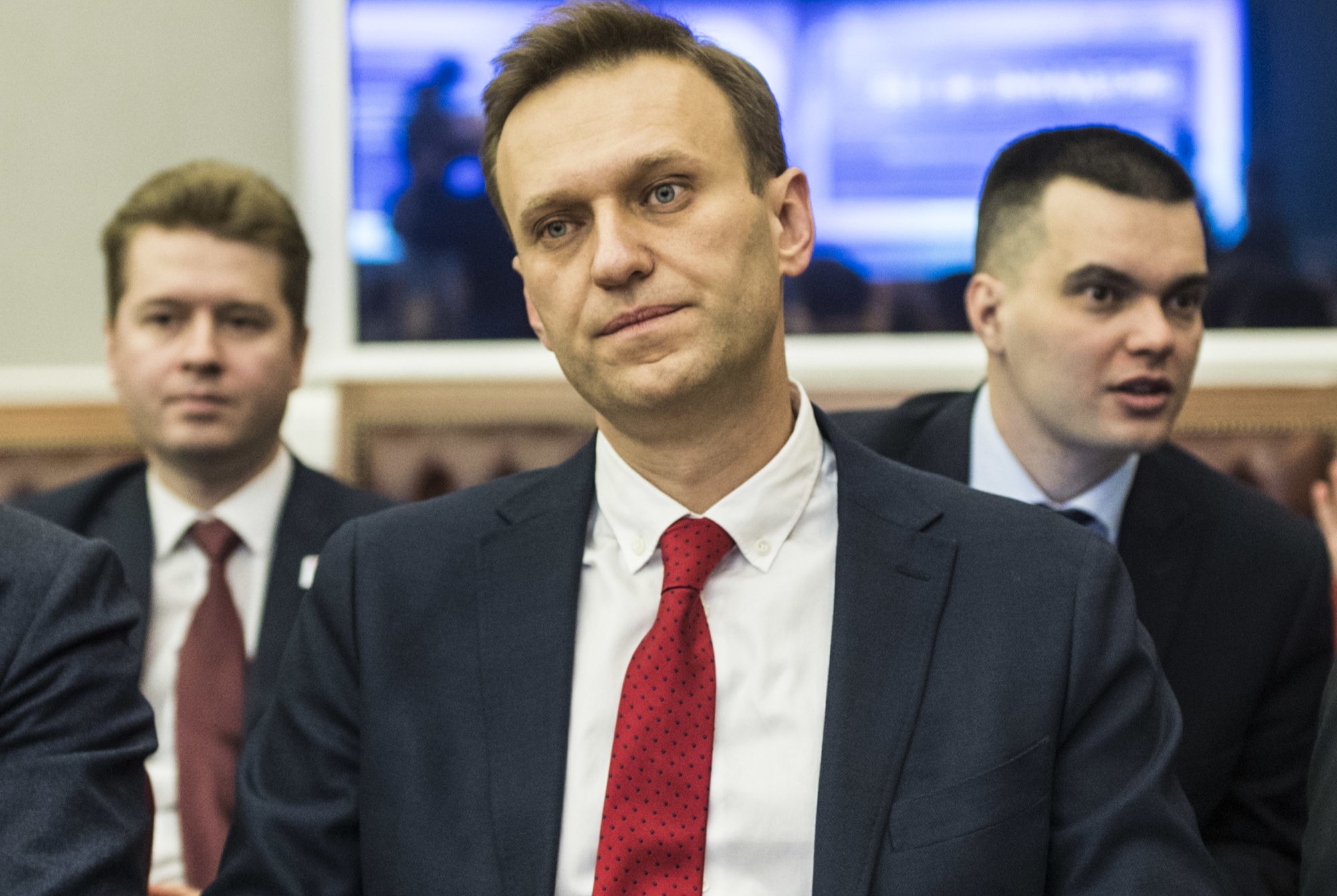
US President Joe Biden and all the others immediately piled in with statements that he had been murdered on direct orders of Vladimir Putin. Now this may be true and is perfectly plausible. On the other hand, it may not be true. At this moment in time, it is impossible to be certain.
But there is something highly suspicious about the indecent haste with which the leaders of the Western world fell over themselves to join in a deafening chorus, condemning the man in the Kremlin (who is regularly blamed for everything, even the weather) and saying this was more proof, if such were needed, of “Russian barbarism.”
Now, the death of any man or woman may be considered a tragedy. However, the scale and high-pitched volume of the chorus of condemnation appears to be somewhat out of place. The impression is created that the entire world has come out onto the streets to protest the death of one man in Russia. However, it is doubtful that most people in the West even know who he is.
As for the demonstrations in Russia, it is hard to get an accurate idea of their scale. But for a number of reasons, it is doubtful whether more than relatively small numbers were involved. It is, however, quite clear that they were met with arrests and police brutality, which is the norm in Putin’s Russia today.
What is striking is the fact that police brutality in Russia against pro-Navalny demonstrators should be given such extreme coverage, while police violence that is now becoming ever more extreme against pro-Palestinian demonstrators is scarcely considered worthy of mention.
Let us accept, for the sake of argument, that one man in Russia was murdered by order of the head of state. This is considered to be a most heinous crime against all the values of humanity.
Britain’s foreign secretary, Lord Cameron, warned darkly that there would be “consequences.”
But what form this punishment ought to take remains a matter shrouded in a deep mystery. Since the Western nations have already exhausted every conceivable avenue of punishing President Putin and Russia short of physical assassination or a declaration of war, they now find that their arsenal of threats is about as depleted as their stocks of money and weapons for Ukraine. The threats therefore can amount to little more than a generous quantity of very hot air.
The president of the United States has repeatedly expressed his firm opinion that the man in the Kremlin should be punished for the death of one man.
Yet Joe Biden’s good friend Netanyahu has been murdering large numbers of men, women, and children in Gaza every day for the last four months. This is not presented in the Western press as proof of murderous intent or a violation of civilized norms. Nowadays, it is mentioned only in passing, while the slaughter continues unabated and, certainly, unpunished.
Oh yes, Joe Biden now pretends to be very sorry about the innocent victims in Gaza. But whereas he is powerless to influence the actions of President Putin in Russia, he has all the means at his disposal to put an immediate stop to Israel’s murderous acts by simply cutting off all financial and military aid.
However, he does no such thing. The arms and dollars continue to flow into Israel’s coffers and are put to good use killing civilians in Gaza. The man in the White House is therefore an accessory to the murder, not of one man but of countless innocent men, women, and children.
Whatever may be the truth about the circumstances of Navalny’s death, the chorus of outraged morality by the Western imperialists can be dismissed with contempt as yet a further example of their stinking hypocrisy and cynicism.
The fact is that this news has provided them with a golden opportunity to drown out the most important news, which does not come from Russia but from Ukraine, where events have taken a very dramatic turn in the last few days.
The fall of Avdiivka
Russia’s defense ministry said its troops had occupied Avdiivka, after a deadly bombardment had left the town almost completely depopulated and reduced to a heap of rubble.
The fall of Avdiivka is merely a continuation of the events that followed the catastrophic failure of Ukraine’s counteroffensive last summer. Just as we predicted, the Ukrainian forces failed to pierce Russian lines and were driven back with heavy casualties.
The tactics pursued by the Russian army have closely followed the proposition of Clausewitz, who pointed out that the purpose of warfare is not to conquer cities or territory but to destroy the enemy forces and thus render them incapable of resistance.
The central aim has been to grind down Ukrainian forces in a brutal war of attrition. The Russians have been greatly assisted in this by the stupidity of the military and political leadership in Kiev, which obstinately insists on the policy of pointless offensives to reconquer lost territory and refuses to contemplate any idea of retreats or withdrawals.
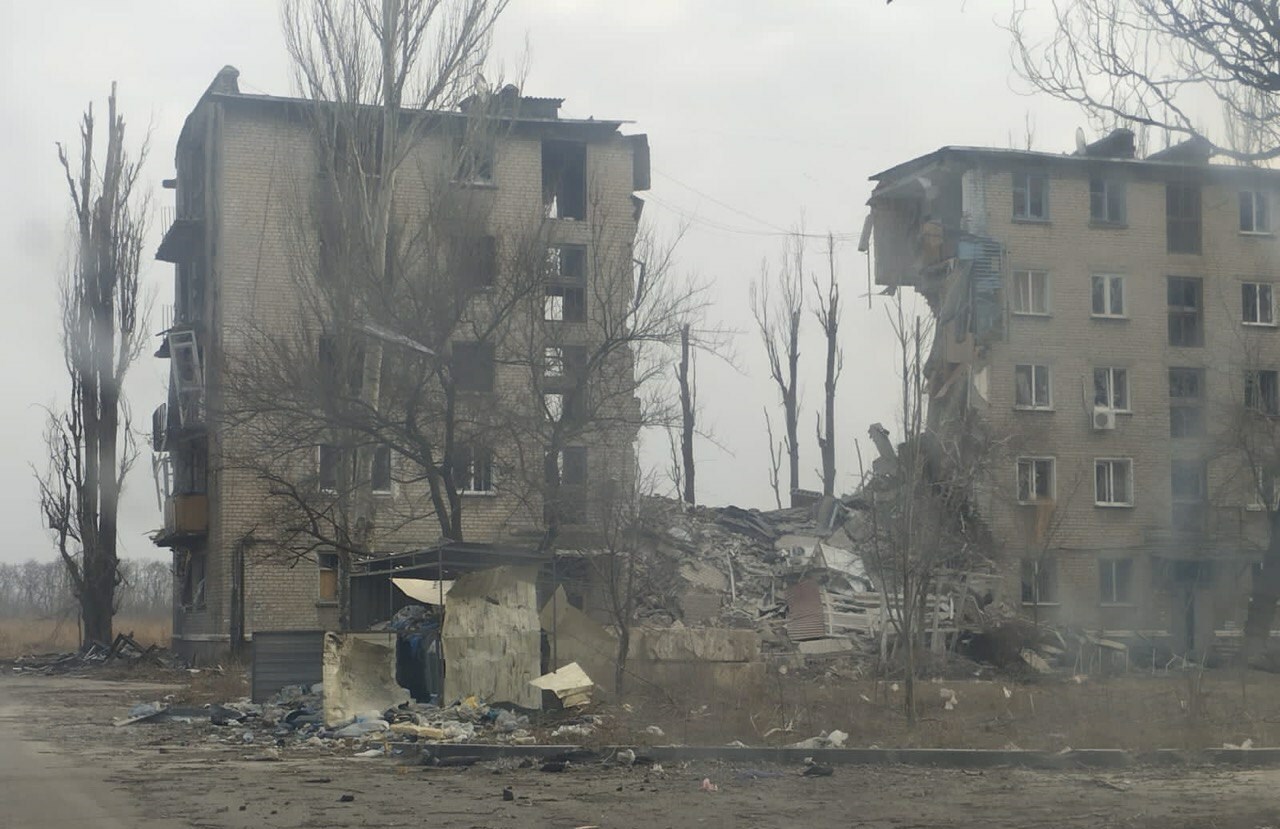
This madness was what really settled the fate of Avdiivka and not, as they now try to argue, the lack of money and arms from the West. The truth of the matter is that America, in particular, has poured billions of dollars and vast quantities of weapons into the bottomless pit of the Ukraine war.
Did this achieve victory? On the contrary, it led Ukraine from one senseless action to another and ultimately to inevitable defeat. Yet, this self-evident truth is entirely lost on the obstinate and myopic leaders in Kiev and their imperialist backers in Washington and London.
The disasters at the front and the growing war weariness of both troops and civilians have produced tensions that led to a political crisis in recent months. This manifested itself in an open confrontation between President Volodymir Zelensky and his commander in chief, Valeryi Zaluzhnyi.
In a move that is unprecedented in the middle of a war, the president was forced to appoint a new commander to run the war. This political crisis also impacted events on the battlefield in the most serious manner.
Suddenly, on Sunday morning, things took a dramatic turn when Colonel-General Oleksandr Syrskyi, who took command of the Ukrainian military following the dramatic dismissal of General Zaluzhnyi, announced that Ukrainian forces had moved back to more secure positions outside the town, allegedly, “to avoid encirclement and preserve the lives and health of servicemen.”
This must have sounded cruelly ironic to the soldiers on the battlefield, who had already taken their own decision to preserve their lives and health without consulting with their commanders in Kiev by the simple expedient of fleeing for their lives from the advancing Russian forces.
The order to withdraw might have made some sense even one week earlier, when the Russian advances had clearly reached a point where the beleaguered forces in the shattered city were faced with the imminent risk of encirclement and annihilation.
It would be easy to blame General Syrskyi for this failure. But that would be grossly unfair. After all, he has only been in command for about a week. The military debacle in Avdiivka was entirely predictable long before this.
About two months ago, the then commander in chief Zaluzhnyi warned that the Russians would take the town in three to six months. The prediction was accurate enough, but his timing was lamentably wide of the mark. Russian forces advanced far more rapidly and organized the attack far more efficiently than he had anticipated.
This fact in itself starkly reveals the level of incompetence at the highest level of Ukrainian military command and also the ineptitude of its intelligence services. In wars, timing is always of critical importance.
In any case, if Zaluzhnyi was convinced that the Russians would inevitably take Avdiivka, it follows that the obstinate insistence on maintaining its defense at all costs was a fundamental mistake and one that endangered the lives of thousands of Ukrainian soldiers.
Any half-competent military commander under such circumstances ought to have immediately taken steps to remove the surviving forces, who had heroically remained at their posts in incredibly difficult and dangerous circumstances, and thus save many lives—although, by this point, such a withdrawal would have inevitably involved further losses. But no such order was given. On the contrary.
Far from preparing for an orderly withdrawal and using whatever time was available to establish a more solid line of defense to which the Ukrainian forces could retreat, the military leaders in Kiev continued to insist that the defense of Avdiivka was of paramount importance and must be maintained whatever the cost. Zaluzhnyi issued no such orders for the simple reason that he was too occupied carrying on a factional struggle against Zelensky to maintain his own position. So when the order to withdraw was given, it was far too late.
This was not a withdrawal but a terrible rout. Amid scenes of indescribable chaos and bloodshed, thousands of shell-shocked Ukrainian soldiers surrendered or fled in panic across open fields where they were subjected to a merciless bombardment from the air and withering machine gun fire.
The scenes now unfolding in and around Avdiivka are ones of unspeakable horror. This was not a battle, but a bloody massacre. Outnumbered, outgunned, and outmaneuvered, the Ukrainian defenders now face certain annihilation unless they surrender and throw down their arms.
Some Ukrainian forces are said to be still holed up at the Soviet-era coke plant, once one of Europe’s biggest. Russian Defense Ministry spokesman Igor Konashenkov said, “Measures are being taken to completely clear the town of militants and to block Ukrainian units that have left the town and are entrenched at the Avdiivka Coke and Chemical Plant.”
But Russian state television showed blue and yellow Ukrainian flags being taken down in Avdiivka and Russia’s white, blue, and red tricolor flag raised, including over the coke plant. To all intents and purposes, the battle is over.
The question that must now be uppermost in the minds of many Ukrainians is: What was it all about? What are we fighting for?
The blame game commences
The fall of Avdiivka exposes the utter falsity of the way the Western media have persistently underestimated the fighting ability of the Russian forces, the quality of their weapons and equipment, and the competence of their commanders.
Biden previously warned that Avdiivka could fall to Russian forces because of ammunition shortages, after months of the Republican opposition in Congress blocking a new US military aid package for Kiev.
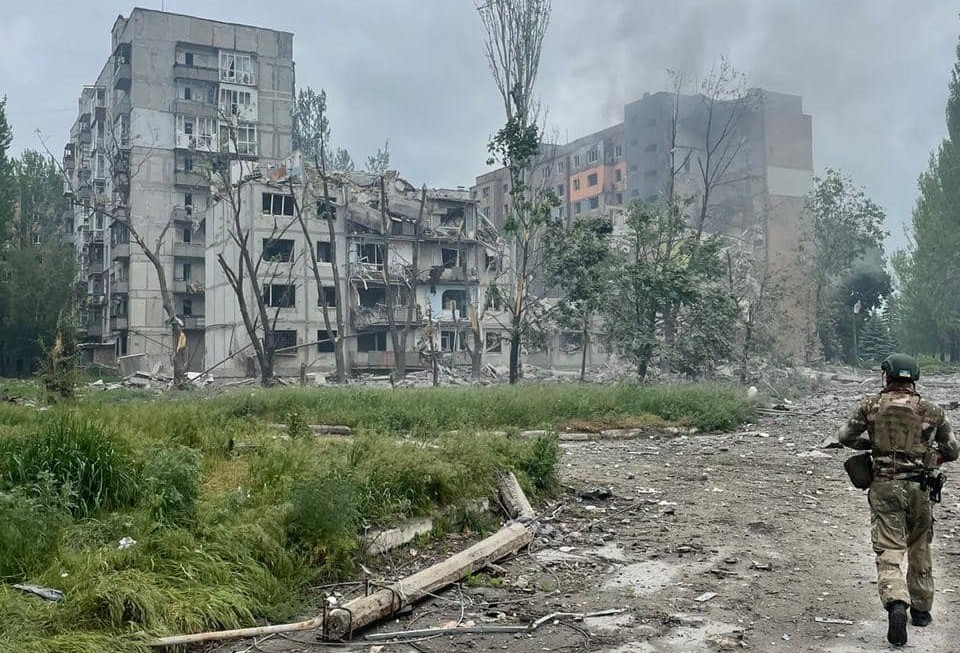
Wikimedia Commons
Ukrainian Defense Minister Rustem Umerov said, “Avdiivka showed the need for modern air defense systems to counter guided bombs and long-range weapons to destroy enemy formations.” He also underlined the need for artillery shells.
This same old song now clearly sounds like an alibi for defeat—which is what it is.
Biden reportedly called Zelensky on Saturday to reaffirm continued US support for Ukraine, which he connected to the urgent need for Congress to pass a new aid package. The White House, in turn, pointed at Republicans, claiming that the Ukrainians were forced to withdraw because of “dwindling supplies as a result of congressional inaction,” leading to “Russia’s first notable gains in months.”
The blame game has thus commenced in earnest. Biden points an accusing finger at the Republicans in Congress for allegedly sabotaging the delivery of money and arms to Kiev and thus betraying the heroic people of Ukraine.
Western production of arms and ammunition is completely insufficient to supply the Ukrainians, who have been firing off ammunition and missiles as if there were no tomorrow. Unfortunately, tomorrow has abruptly come.
Neither Russia nor Ukraine have given details of their losses in the intense battle for Avdiivka nor the war as a whole. Western intelligence assessments say hundreds of thousands of men on both sides have been killed or wounded in the war. Whatever the true figure, the fact is that Ukraine cannot replace these losses, while Russia has no shortage of men, weapons, or ammunition.
Putin offered his congratulations to the Russian commander in charge of the forces that took Avdiivka, Colonel-General Andrei Mordvichev, in a telegram: “Eternal glory to the heroes who fell in fulfilling the tasks of the special military operation!”
The Russian forces continued to advance all along the front line, capturing one point after another. On Sunday, the very day that Avdiivka fell, Ukrainian forces reported a Russian offensive on the southern front in the area of Zaporizhzhia.
It is too soon to say whether this will be the next objective of what is clearly a Russian offensive. But it is beyond doubt that the Ukrainians no longer have any possibility of halting it.
The truth is beginning to slowly penetrate even the thickest skulls in Washington and London: the chances of Ukraine defeating Russia are now practically nil. Although most politicians cannot say so in public, in private they openly ask the question: can we afford to continue this?
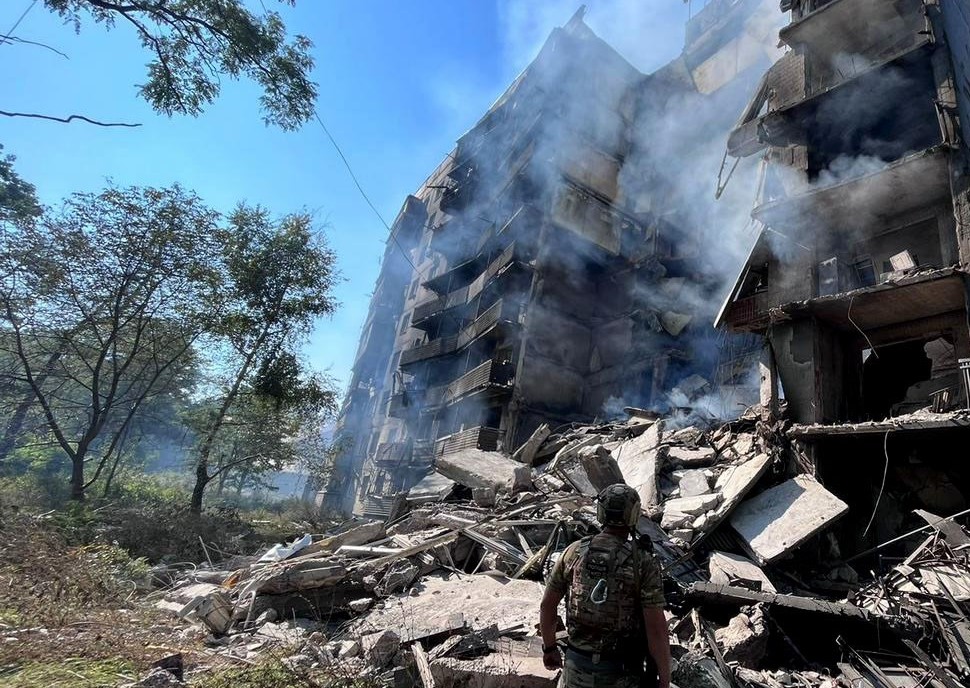
Betrayal
While the battle for Avdiivka was reaching its bloody climax, the heads of Western states were gathering in Germany for the 2024 Munich Security Conference (MSC). This jamboree of the rich and famous was advertised as the world’s leading forum for debating the most pressing challenges to international security.
But the mood this year contrasted starkly with the more upbeat affair in 2023. As Heather Conley, head of the German Marshall Fund, put it, “It was very self-congratulatory last year, with so much hope pinned on the Ukrainian counteroffensive.”
But the humiliating defeat of that counteroffensive has shattered those foolish illusions and compelled at least some of those present to use their brains to think.
“We’re going to see Ukraine suffer from battlefield losses, we could see significant Russian gains, and the Ukrainians have no ammunition left,” Conley said.
The mood at the Munich conference is evident from a report in the New York Times:
The dourness of the mood contrasted sharply with just a year ago, when many of the same participants—intelligence chiefs and diplomats, oligarchs and analysts—thought Russia might be on the verge of strategic defeat in Ukraine. There was talk of how many months it might take to drive the Russians back to the borders that existed before their invasion on February 24, 2022. Now that optimism appeared premature at best, faintly delusional at worst.
Delusional is precisely the word to describe the kind of artificial bubble in which Western leaders had become accustomed to living. And despite all the accumulated evidence from the battlefield, the inhabitants of this bubble seemed to be quite comfortable with their delusions.
In between one cocktail reception party and another, these privileged ladies and gentlemen took it upon themselves to encourage the long-suffering people of Ukraine to continue their heroic resistance to Russian aggression. As usual, they were prepared to fight to the last drop of Ukrainian blood.
This is, of course, a very safe kind of heroism, over a thousand miles distant from the actual blood-soaked battlefields of Donetsk. Here, the awful reality of war presents a stark contrast with the absurd delusions that persist in the minds of the leaders in the USA and Europe—always assuming that they possess such a thing as a mind at all.
Jens Stoltenberg, the flint-faced Norwegian who calls himself the Secretary General of NATO, naturally occupied pride of place as a well-known advocate of peace, security, apple pie, and motherhood, as well as democracy and all the other basic principles of Western, Christian values.
Also present was the widow of Alexei Navalny, whose contribution to the maintenance of European security seems limited to demands that the West stands up to Russia.
This was music to the ears of Stoltenberg, who did not fail to make full use of these words to add spice to his usual belligerent and bellicose speech.
He called on Russia to answer “serious questions” about the death of Alexei Navalny, underlining that Russia is ultimately responsible, and that the best way to honor Navalny’s memory was to continue supporting the Ukrainians fighting for freedom and independence. Thus, he let the cat out of the bag.
Also noteworthy was the presence of the representatives of the US military-industrial complex. President and CEO of Lockheed Martin, James Taiclet, and a delegation from Boeing, including president and CEO of Boeing Defense, Ted Colbert, all put in their appearance, like so many hungry vultures circling over the corpses on a battlefield.
Someone once said to Lenin, “war is terrible,” to which he replied, “yes, terribly profitable.” In addition to the obsessive hatred of Russia that persists from the Cold War era in Biden’s White House, there are very material interests that favor continuing the appalling carnage in Ukraine for as long as possible.
Mr. Stoltenberg pointed proudly to record increases in Allied defense spending and arms production as examples of how the Alliance is adapting to a more dangerous world … by making it still more dangerous.
A note of worry began to creep into his speech at this point. Badly shaken by Donald Trump’s off-the-cuff remark that the USA would not be prepared to come to the defense of members of NATO that did not fulfill their financial obligations, Mr. Stoltenberg emphasized that European Allies and Canada are stepping up aid to Kiev, and he warned that there was a “vital and urgent need” for the US to follow suit.
Stoltenberg was clearly aiming his remarks at the US Congress in general and the Republicans in particular. But the latter show no signs at present of relaxing their opposition to sending more money into a black hole in Ukraine. Whether they were listening to him or not is a matter of speculation.
In talks with delegations from both sides of the US Senate, Stoltenberg stressed that a strong NATO is in the US national interest and underlined the need for the US to urgently approve further aid to Ukraine.
Naturally, Volodymir Zelensky could not fail to attend a gathering of the rich and powerful, who could be relied upon to give him the support and applause that he signally lacks in his own country.
Thus, at a moment of extreme national emergency, he found himself in Munich, once again at a global security conference, pleading for more weapons to fill what he called an “artificial” shortage and to underline the imperative need for the US to come through with its stalled aid package.
He praised his troops for “exhausting” Russian forces in Avdiivka and suggested the withdrawal was partly caused by a lack of weapons. There was no hint in his speech that there had been a serious defeat at all!
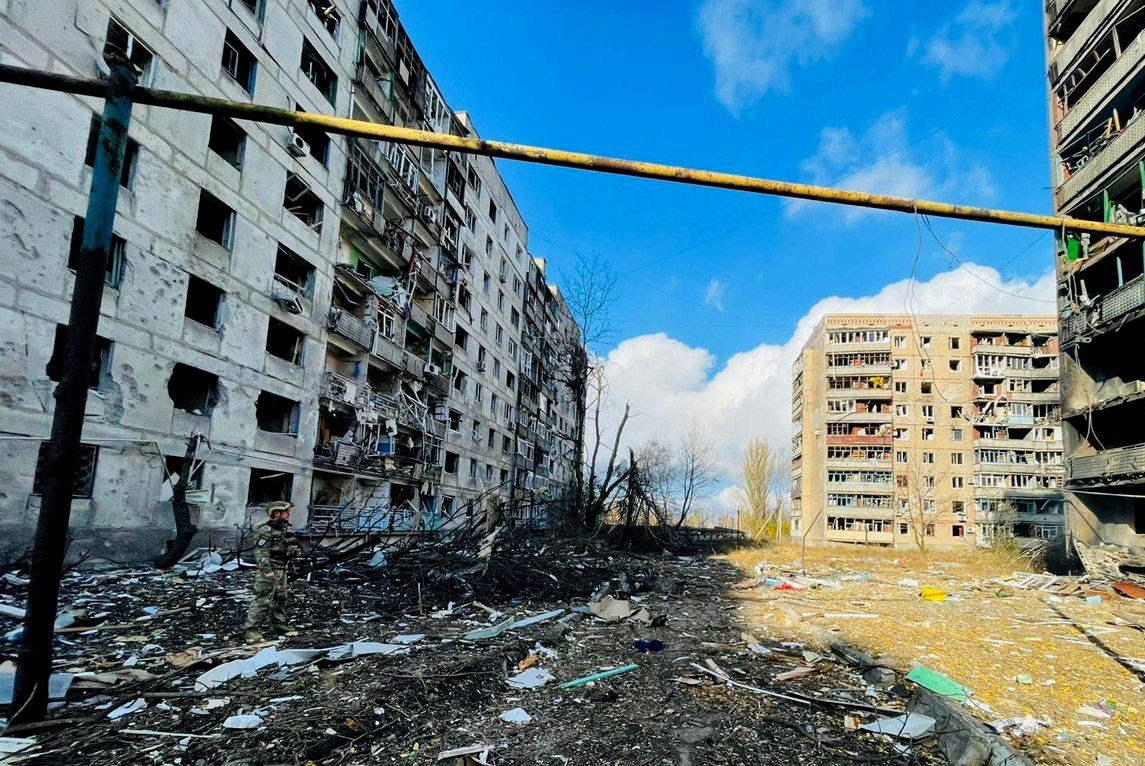
“Now, [the military] will replenish, they will wait for the relevant weapons, of which there simply weren’t enough, simply aren’t enough,” he said. “Russia has long-range weapons, while we simply don’t have enough.”
What the Ukrainian president forgets to mention is that it is not just Ukraine that “simply doesn’t have enough.” It is the whole Western alliance, whose stocks of weapons, missiles, and ammunition have been so depleted by massive shipments to Ukraine that it is no longer able to meet the demands coming from him and his generals.
Zelensky’s support is rapidly evaporating. He is attempting to push through a major new mobilization. But this is meeting growing resistance from a population that is now thoroughly tired of war and no longer believes anything that the government says about the prospect of victory.
The news from the front gradually trickles down and spreads a feeling of despondency and defeatism among both the troops and the civilian population.
The fall of Avdiivka will have enormously increased the mood of disaffection and anger, not just against Putin but, in particular, against the political and military leaders in Kiev, who are blamed for creating the present disastrous situation.
Just how long this situation can last is difficult to predict. But it is quite clear that time is running out fast for the Ukrainian side and for the West. There is now no question whatsoever of a Ukrainian victory over Russia. The fact is that there never was such a possibility.
The people of Ukraine are the main victims of this terrible crime. From the very beginning, they have been deceived with false illusions and pushed into an unnecessary and catastrophic conflict with a far more powerful neighbor.
Zelensky might be well advised to cancel his return ticket to Kiev and stay in Munich, where he will be assured of a comfortable retirement. In his own country, his support is collapsing by the day, if not by the hour.
It may be too soon to say that the debacle of Avdiivka marks the end of the war. But it is certainly the beginning of the end, which nothing can now alter.
In reality, those who have shamefully betrayed the Ukrainian people are the likes of Joseph Biden, Boris Johnson, and their allies in crime in NATO, who deliberately pushed Ukraine into a war it could never win and are now attempting to prolong the agony, suffering, and death of the people whose interests they claim to defend.

